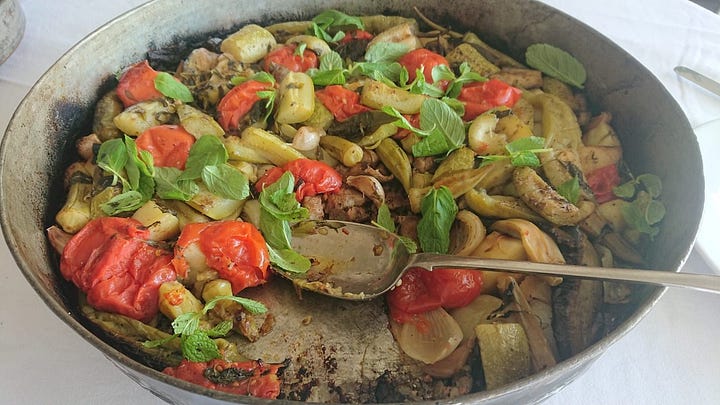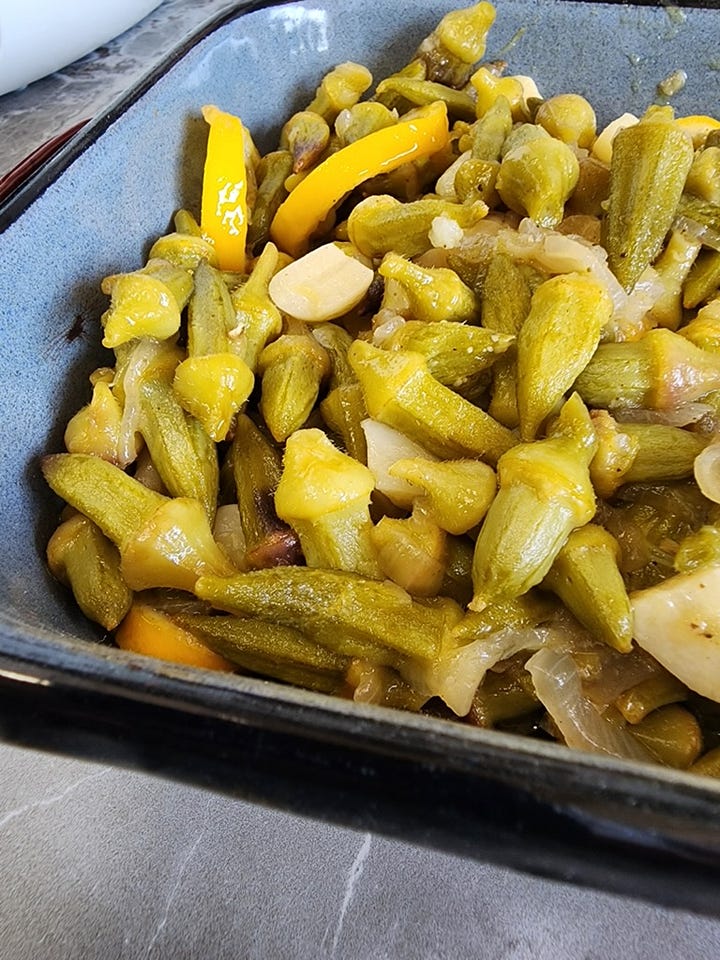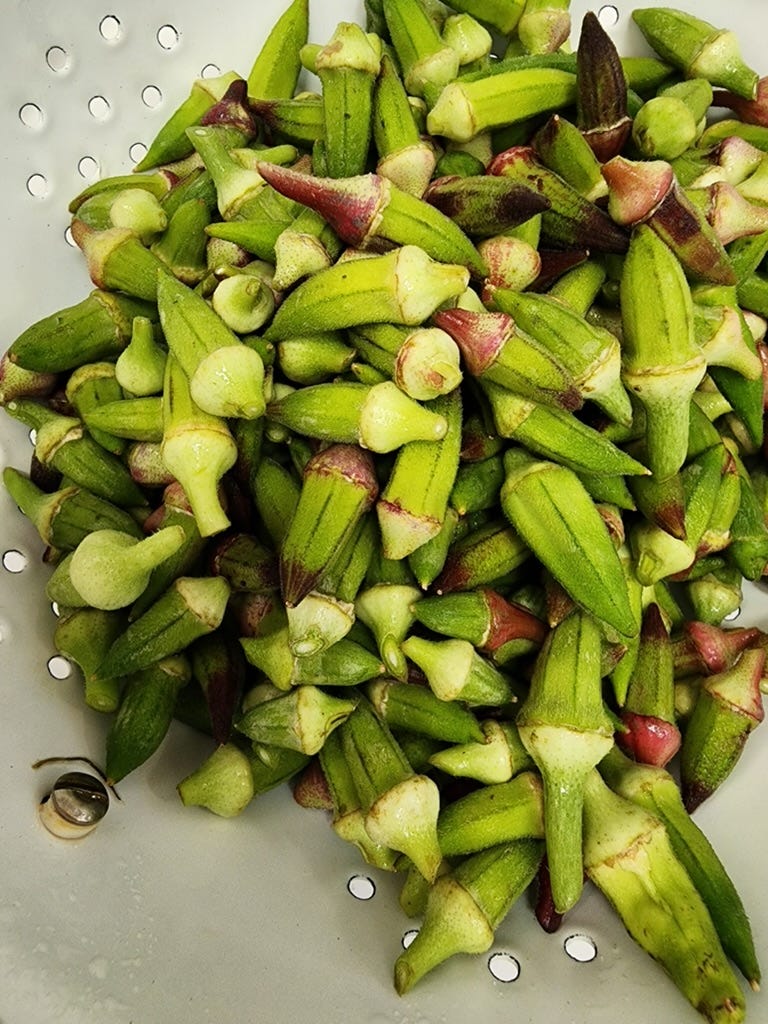okra, a love-or-hate story
one traditional recipe and a few non-traditional suggestions I love
are you an ‘okra’ person?
so many people dislike this relatively undesired vegetable. in our culture children have a tendency to feel repulsed by its slimy-ness. also so many grownups have stories how their mothers pushed them to eat okra, too many tearful memories. yet I’ve known people who detested okra as a kid, have acquired a taste for it later in life.
I can understand the fact that it can be an acquired taste. yes, when overcooked or treated the wrong way okra becomes slimy.
I don’t know of many cultures to deem this veggie as part of their cuisine. Indians and Africans yes, Creole indeed, but Europeans, Brit or Americans? not really.
okra is a native of East Africa. obviously it has travelled to Anatolia where its presence is felt. by presence I don’t mean it is an ingredient of desire, not like tomatoes. almost always it is a love or hate story. some adore it, some don’t. in Istanbul it certainly has its place but surprisingly okra is present in some Anatolian dishes. for example Cappadocia has dishes made with dried okra. Konya cooks okra with sheep’s meat and in Ayvalik it is part of a fish stew. again it is a matter of geography. all the fore-mentioned areas grow okra, so they consume okra.


as for Istanbul it is part of our beloved “türlü” a summer vegetables’ stew with lamb’s meat cooked either in an earthenware or a copper pot. also we make a “zeytinyağlı” with it. actually there are several versions of it. in early summer, beginning of June, when tomatoes are not fully ripe to be used, okra gets cooked with verjuice. another option is cooking it with greengages which is also late spring early summer. in the absence of both one uses lemons. it is not easy to find sour unripe grapes but when you do, you cook okra with them. sour becomes okra very much.
okra is available almost all summer. when the time comes, tomatoes with their earthy tartness replace the verjuice, greengages or lemons. these traditional cooking options are always in the form of a “zeytinyağlı”. which means they are meatless, cooked gently in an abundance of olive oil, let to cool to room temperature and savoured with freshly baked loaves of bread. what all these “zeytinyağlı” okra dishes always have in common is the presence of onions and garlic.
I am definitely an okra lover. I enjoy all the traditional dishes but there are so many other delicious ways to enjoy okra, it would be amiss not to mention some of my favourites:



